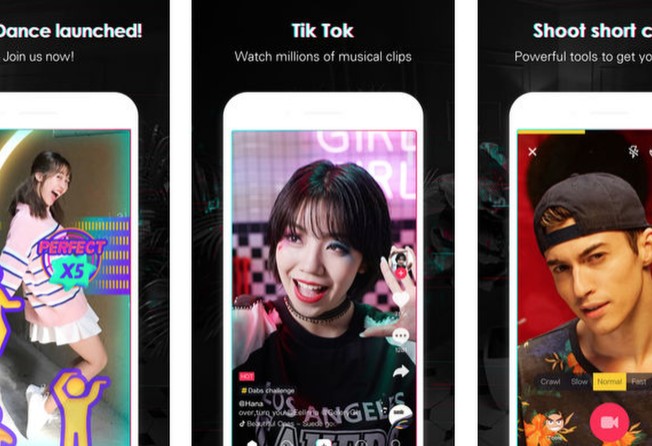
Google, Tik Tok and why Hong Kong parents are to blame for children risking their safety online
Is it any wonder young people are looking for a space to be alone and away from school work, when families eschew quality time together, despite the green and open spaces Hong Kong offers?

The timing couldn’t have been better. Following Google’s recent launch of its Digital Wellbeing initiative – aimed at lessening our smartphones’ corrosive effects on modern life – came a grim reminder of those effects at their worst. An increasing number of Hong Kong children, it was reported, are becoming addicted to an iPhone app that risks violating their privacy and making them vulnerable to predators.
Tik Tok, launched in September 2016, is a music video platform and social network that lets users make and share 15-second music videos. It has become the world’s most popular iPhone app, surpassing giants like Facebook, YouTube and Instagram.
The clips from these famous-for-15-seconds performers range from the laughably amateurish to the sexually suggestive, all with the intention of drawing attention.
While users have to be aged 16 and above, there is no policing to stop younger people from joining or adults using false identities to stalk and prey on young girls and boys.
Electronic device addiction has become a global epidemic, to which few are immune. And that applies to many of you who are reading this column on your phone, tablet, laptop or desktop computer. The question we are all too scared to ask is: is any initiative boosting digital well-being, from Google or anyone else, too little too late? Have we passed a tipping point?

We don’t know for sure. What we do know is that the signs have always been there that this e-addiction, like wildfire, will only spread further and faster and we appear powerless to stop it. Instead of trying to put this fire out, we continue to fuel the flames.
The first iPhone was launched more than 10 years ago, followed by a range of other e-devices. We have known for a while that their influence and addictiveness would be unstoppable. And we introduced iPhones and other such devices to our children and even toddlers as an easy way of parenting. We are using these devices to occupy their time, so they won’t occupy ours. We have opened a can of worms and created life-long addictions for our children.
Besides exposing our children to this e-addiction at a tender age, we are also creating a domestic and social environment that is a perfect breeding ground for them to cultivate this addiction.
Hong Kong parents never seem to want to spend quality time with their children. And even in the few moments families spend together, each member ends up glued to their own device anyway. Hong Kong children are never given the time, space or opportunity to enjoy free time without being shackled to either homework or often unnecessary after-school activities.
There are never frivolous moments for them to be children; to do nothing but daydream and use their own imagination. Learning this and that is supposed to be a way for them to win a place at a good university, even when they are just in kindergarten.
We don’t need Google to encourage us to partake in some form of “internet rehab”, we should have the willpower to do it of our own volition
So can we blame our children for wanting a place where they can be left alone and do whatever they want? It’s a silent and passive form of rebellion. Unfortunately, they are doing it without proper guidance and exposing themselves to potential harm.
What I am saying is, while Google’s efforts to wean us off of our screens may be well intended, it is not a panacea for this addiction. It is never advised for addicts to go cold turkey, but the road to rehab needs to start in an environment free of the addiction. This is why we have special facilities for addicts, so that they begin their journey to curing their addiction in a safe and compassionate environment, rather than in the one that put them on that dangerous path in the first place.
This metaphor can be applied to the short-sighted goal of the Digital Wellbeing initiative, which is mainly aimed at cutting screen time. Although less time online can only be a good thing, is the best place to kick your online habit on an online platform?
Why not go outside instead? Hong Kong may be a concrete jungle, but it is blessed with greenery and an abundance of flora and fauna that ought to be enjoyed. There are plenty of parks and playgrounds around, why not take your kids there or encourage them to meet their friends there rather than talking to them online? There are plenty of alternatives to letting you and your family disengage and zone out on a phone screen, it’s just a matter of taking the first step.
We don’t need Google to encourage us to partake in some form of “internet rehab”, we should have the willpower to do it of our own volition. We know that it isn’t good for us to spend too much time attached to our electronics, much like we know it isn’t good to smoke, drink and eat junk food. Many of us enjoy these things, but it is always wise to do it in moderation and the same can be said for our smartphones.
Do yourself a favour this week. An hour before bed, spend time talking to your family; find out what they did that day and tell them about your day. Or read a book, to unwind before going to sleep. Studies have shown that if you’re looking at a screen just before bed, your brain isn’t secreting melatonin and that means you’re not going to have a restful night’s sleep. I challenge you to try this for a week and encourage your family to do the same. The results might surprise you.
Luisa Tam is a senior editor at the Post